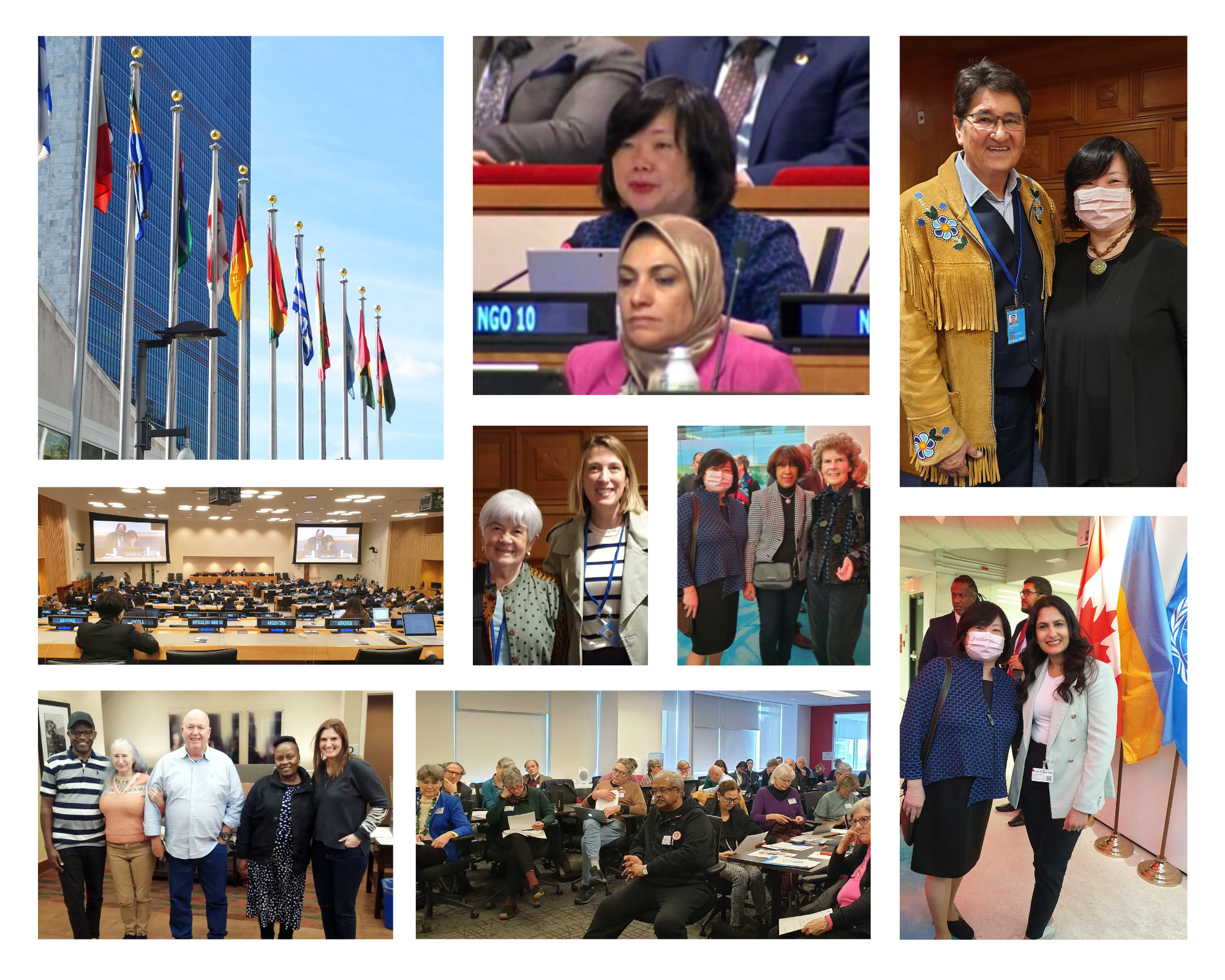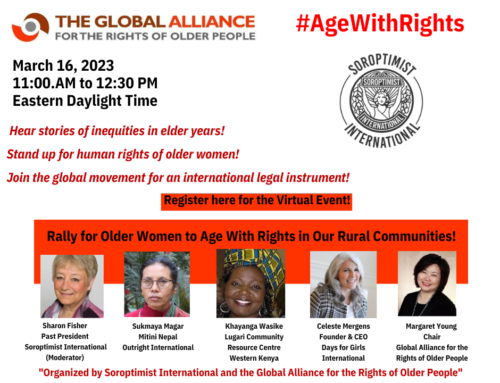The UN Open-Ended Working Group on Ageing is the forum that actively discusses older people’s human rights. Its mandate is to identify human rights protection gaps in existing international frameworks and recommends how to address them, including whether additional instruments are needed. This Working Group consists of UN organizations, 193 UN Assembly member countries, civil society, and national human rights institutions.
Thirteenth Session of the Open-Ended Working Group on Aging
The Thirteenth Session of the Open-Ended Working Group on Ageing was held this year in New York between April 3rd and April 6th. Government representatives, older people, NGOs, academia, and national human rights institutions attended. Discussion topics included contributions of older persons to sustainable development, economic security, right to health and access to health services, social inclusion, strengthening the promotion and protection of the human rights of older persons, and a proposal for the intersessional period between the Thirteenth and Fourteenth Sessions.
Cross Regional Core Group of the Working Group
Human rights discussions and debates on a UN convention for the rights of older people were active throughout the four days. The draft decision proposed by the Cross Regional Core Group was a significant tension point with far-reaching impact.
The draft decision proposed establishing an intersessional working group between the Thirteenth and Fourteenth Sessions. The intersessional work aims to identify gaps in the protection of the human rights of older persons and how best to address them. There were more dissenting government voices than anticipated on the draft decision proposal, although there was support for the Core Group’s focus at the Twelfth Session.
Thanks to the unwavering position of the Core Group countries (i.e., Argentina, Austria, Bangladesh, Canada, Chile, El Salvador, Germany, Italy, Morocco, the Philippines, Slovakia, Slovenia, Türkiye, the United Kingdom, the United States, Uruguay), other countries, and the unified voices of civil society and national human rights institutions, the draft decision proposal was adopted by the government representatives with consensus.
Civil Society and National Human Rights Institutions of the Working Group
Older people, non-governmental representatives, and national human rights institutions were more vocal and unified than ever at the Thirteenth Session. While each brings diverse expertise and experience, the cross-cutting messages were unified:
- We call on our governments to draft a UN convention on the rights of older people so that we all can age with rights!
- The Working Group needs to catch up to the broader movement, and there needs to be better coordination between work in New York and Geneva (Human Rights Council)!
- We call on our governments to support the draft decision proposed and submitted by the Cross Regional Core Group and start the work immediately!
- We are disappointed at the lack of inclusion of civil society so far in the last intersessional session. We want meaningful participation. Nothing about older people without older people!
Way Forward for Civil Society and National Human Rights Institutions
Active and meaningful contribution to intersessional work is an immediate priority for older people, civil society, and national human rights institutions. More broadly, I see the following as some of the critical priorities for the movement after the Thirteenth Session:
- Strengthening advocacy voice and diversity with more actors within and outside of the non-government organization sector,
- Ramping up collaboration between human rights institutions and non-governmental organizations nationally, regionally, and globally,
- And raising awareness and voices of older people, in all diversity, to stand up for their human rights!
A transformative need and opportunity await us. I would love to hear your thoughts!






